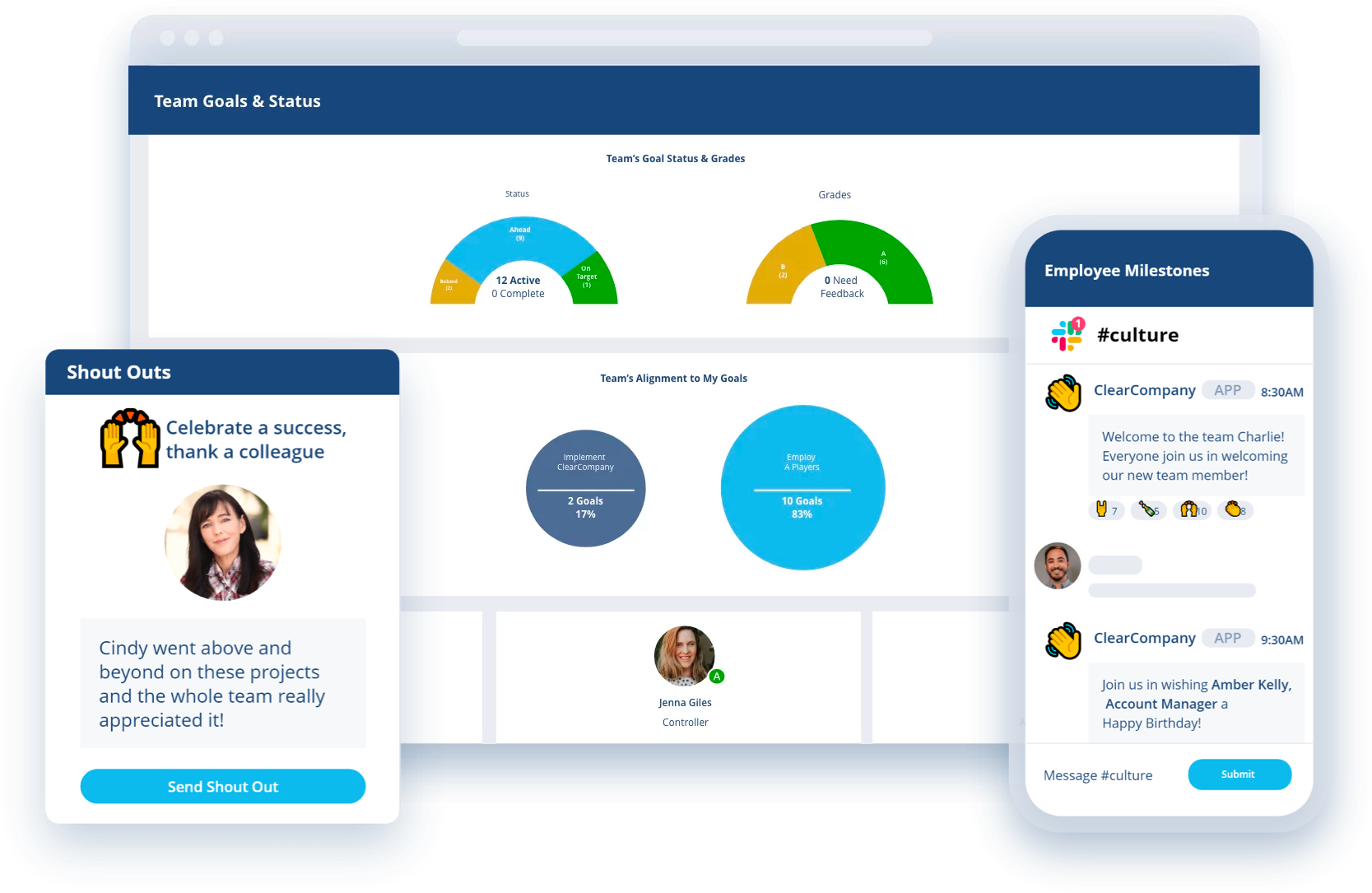This article on the importance of employee experience was originally published in April 2018. It was updated with new facts and information in January 2021 and April 2024.
For anyone working in human resources, it’s impossible not to notice how the workplace has changed in the few years since the pandemic. Many of us are reconsidering our relationship with work or reprioritizing what’s most important. Today, you may work remotely or on a hybrid schedule or have access to new health and well-being perks. You might be more likely to completely unplug at the end of the workday or use your PTO.
Whether you view work differently or not, many of your employees certainly do. During the pandemic, it became clear to many people in the workforce that they needed more from their employers. They wanted better work-life balance, transparency, and, most of all, to be treated with respect.
Your people are looking for a great employee experience.
These expectations haven’t let up, and when people are not getting the good employee experience they want, they’re quitting. 58% of employees say they’re considering new jobs this year. It’s no wonder that 70% of CHROs indicated that strengthening the employee experience and company culture was their top priority going into 2024.
If you’re among the majority of HR teams looking for the best ways to give your people a positive employee experience, you’re in the right place. Below we break down the importance of employee experience and highlight strategies for how to improve it at your organization.
Want to build a culture of success? Start by focusing on employee experience. Read @ClearCompany’s latest blog for actionable insights to help you get there. 🌟What Is Employee Experience?
The employee experience refers to each employee’s journey with your company and their feelings about it, from the time they’re hired and onboarded until they leave, and sometimes even beyond that. You might think of it as how current or former employees would describe their time working at your company, from their relationships with colleagues and career growth opportunities to whether they received support and motivation to do their best.The employee experience (EX) is shaped by every interaction during the employee lifecycle, as well as each person’s experiences with their roles, managers, work environment, and well-being. It impacts their perception of your company and not only their individual success but that of their teams and the entire organization.
Employee experience is affected by these main factors:
- Employees’ physical work environment
- The tools and technologies employers provide that enable employees to do their jobs
- Employees’ sense of belonging and connection to company culture and values
- How employers demonstrate a commitment to employees’ health and well-being
When you planned your recruitment strategy, you likely considered the candidate experience because it’s valuable for your employer brand and hiring success. Your employee experience strategy is an extension of that process, focused on keeping employees engaged, connected, and satisfied with their work so they stay with your company.
Tip: Utilize employee engagement surveys to gather quick insight into how your people feel about their employee experience.
Why Does Employee Experience Matter?
Employee experience is what shapes employees’ feelings and perceptions of your company — its culture, brand, and purpose. Those feelings and perceptions impact employee engagement, retention, development, performance, and even customer satisfaction.
In short, the employee experience matters because it has a direct impact on the success of your business. Let’s look more closely at why EX is so significant.
Drives Engagement and Performance
Employee engagement (and its benefits) is the result of a great employee experience. Engaged employees are 59% less likely to be looking for a new job. They produce higher quality work, are more innovative problem-solvers, and provide better customer experiences. Engagement is a top factor in the success of your business — companies with high levels of engagement are 21% more profitable.
Investing in employee experience isn't just a trend — it's a necessity for thriving organizations. Discover why in @ClearCompany’s latest blog.💡Reduces the Cost of Turnover
You’re well aware that retaining your current employees is much more cost-effective than dealing with employee turnover. Replacing employees takes weeks of valuable time and can cost up to two times their salary. That adds up fast, eating away at your business’s bottom line.
Turnover also affects the employee experience by disrupting team dynamics, diminishing morale, and impacting overall productivity. It’s no surprise that the research shows that of CHROSs whose priority is employee retention and recruitment, 80% say retention takes priority over internal mobility or attracting new workers.
Fosters a Culture of Success
When employees feel valued, supported, and engaged, they're more likely to stay committed to your organization long-term. On the other hand, a negative employee experience can lead to disengagement, absenteeism, and underperformance. By investing in employee experience, you're not just creating a positive work environment — you're fostering a culture of success where employees thrive and grow alongside your organization.
Improves Customer Satisfaction
Happy employees lead to happy customers. When employees feel valued and engaged, they're more likely to go the extra mile to deliver exceptional customer experiences. This, in turn, leads to increased customer satisfaction, loyalty, and advocacy. In fact, research has found that companies with high employee satisfaction scores also tend to have higher customer satisfaction scores.
When your people are disengaged, quitting, or underperforming, it’s often because they’re not having a good employee experience. On the other hand, when you foster a sense of purpose, provide support, and cultivate relationships throughout the employee journey, you’re shaping the employee experience by creating an environment where engagement can thrive.
How to Start Improving Employee Experience
Now that you understand the importance of the employee experience, it’s time to start the process of designing — or redesigning — the employee journey at your organization.
Step 1: Assess Current Employee Experience
To facilitate a discussion about employee experience at your organization, discuss these questions with your team and stakeholders:- Do you have an established employer brand and candidate experience strategy?
- Do your recruiters interact with passive candidates and talent pools?
- Does your company have an effective onboarding strategy that supports remote onboarding and increases new hire retention?
- Is performance management tracked and discussed in a transparent and accessible way?
- What challenges do your employees face, and are they provided the tools to overcome them?
- Do your employees feel they have a good work-life balance?
- Does your company have a strategy for frequent and timely recognition and feedback?
- Do you know whether or not your employees are engaged?
You can also use employee experience surveys to get firsthand feedback on how your employees are feeling. With employee engagement software, you can send a variety of surveys and analyze their results — and set automatic survey cycles to take tasks off your HR team’s plate. Gauge your people’s feelings about:
- Overall employee satisfaction and engagement
- Mental health and well-being
- Their work environment
- Their onboarding or new hire experience
- Your diversity, equity, inclusion, and belonging (DEIB) policies
- Any topic that’s important to your company with custom surveys
Step 2: Create a Plan
With the insight you gathered from assessing your current employee experience, you can now make a plan for how to address shortcomings and bolster strengths. Work with your team and stakeholders to identify your priorities and develop actionable strategies. Here’s how to do that:
- Prioritize where your company needs to improve the employee experience. For example, if your new hire turnover rate is twice your company’s average, the onboarding process is most likely the first part of the employee journey you’ll want to focus on.
- Set goals for your areas of improvement and communicate them to everyone involved. If you’re revamping onboarding, your goals might include reducing new hire turnover by 10% over the next year.
- Develop an action plan for how to tackle your goals. With onboarding, your plan might start with implementing a new hire survey so you can create a record of what’s working, what’s not, and how those perceptions change as your strategy changes.
- Invest in your managers and employees by providing them with the training and tools they need to improve the employee experience. That could include providing comprehensive software tools and training your people on skills like effective communication, leadership development, conflict resolution, and DEIB.
Step 3: Implement Changes
Putting your employee experience improvement plan into practice doesn’t need to be all-or-nothing. You might implement the plan in stages or test it in one or two departments. No matter how you get the ball rolling, keep your employees informed about what you’re doing to address any concerns they may have brought up in their survey responses. As new processes take effect, continue to provide support and coaching for your team and employees.
Bonus Material: Supercharge employee engagement with these ClearCompany resources.
Step 4: Monitor Outcomes
When you make changes to any process at work, it’s highly beneficial to monitor the results. That tells you if your strategies are on the right track or are having the opposite of the intended effect. Track your progress against the goals you set in Step 2, and continually collect employee feedback to see how they feel about changes to their experience.
Be prepared to adjust your strategies as you learn more about their impact. Flexibility and responsiveness help ensure your efforts remain effective and relevant over time. Don’t forget to recognize when your strategies are working and acknowledge your wins as you go along.
Work has always been a fundamental aspect of people’s lives — we spend most of our time there, and it’s often a big part of our identities. In the past, employees would prioritize their work over other parts of their lives and adjust their lives to fit the needs of their workplace. We know now that that leads to burnout and, ultimately, disengagement.
Today, people want to work for companies that are compatible with their lives and offer an employee experience that respects them as people and considers their well-being. When you cultivate an employee experience that contributes to their well-being instead of taking from it, it’s easy to see why your people are more productive and effective employees.
Software for the Complete Employee Experience
You can enable your people to do their best at work, continuously refine your strategies, and create the ideal employee experience with the right software. There are many stages of the employee lifecycle, and you can manage them with a comprehensive talent management solution.
The ClearCompany Talent Management System unites every stage of the employee experience:
- Recruiting and Hiring: Attract, source, interview, evaluate, and hire best-fit candidates.
- Employee Onboarding: Welcome new hires and maintain compliance standards with ease while simplifying HR’s workload.
- Performance Management: Evaluate performance against employee goals regularly and fairly via both informal check-ins and formal performance reviews.
- Employee Engagement: Ask for employee feedback and gauge overall sentiment with surveys. Recognize their hard work and accomplishments and celebrate successes and milestones.
ClearCompany even improves the employee experience for your recruiters and HR team with streamlined communication, automated workflows, and best practices guides for every process. Your team can more easily engage with candidates, employees, and talent pipelines and offer the recognition and support employees need to thrive.
Schedule your free demo today to see how ClearCompany’s fully integrated Talent Management System can transform your organization's employee experience.





